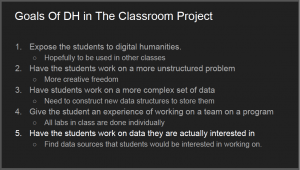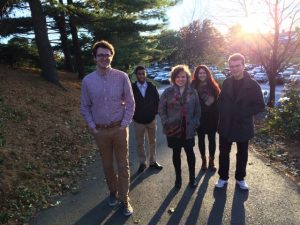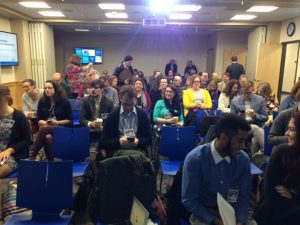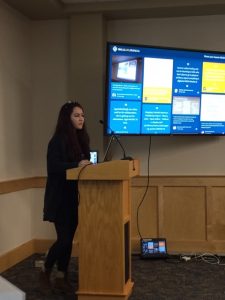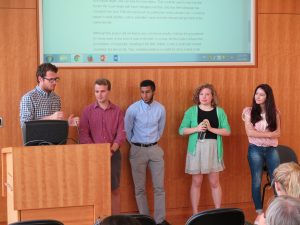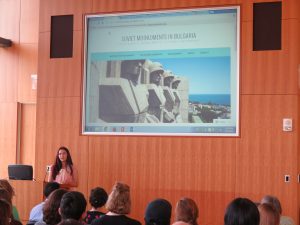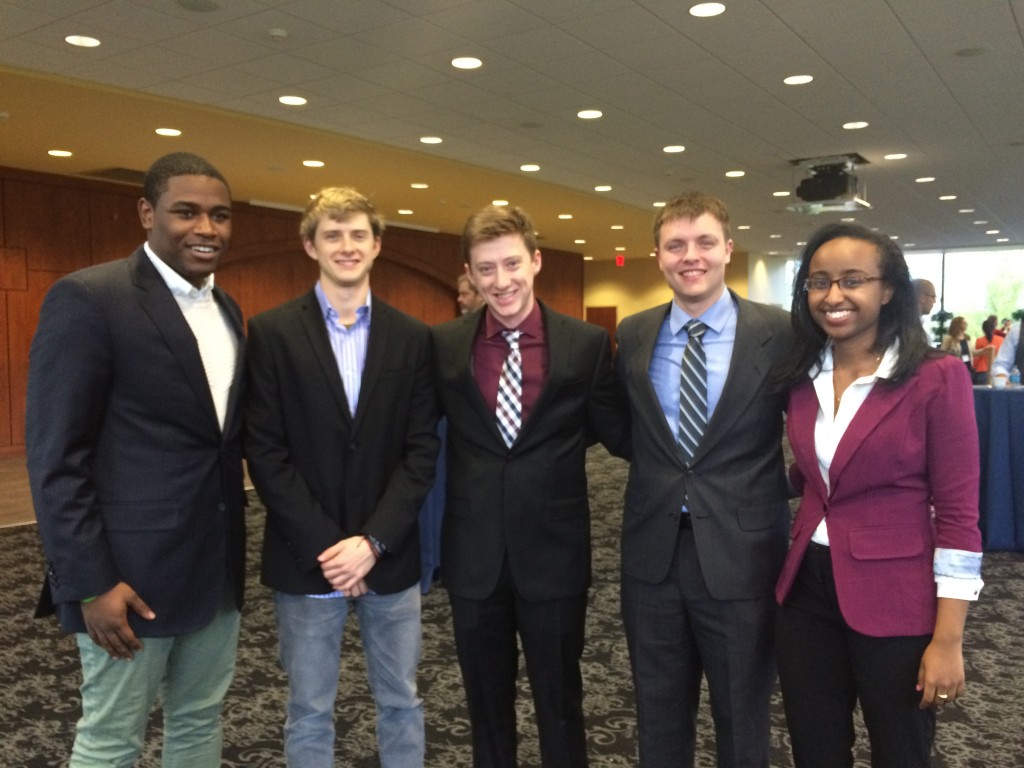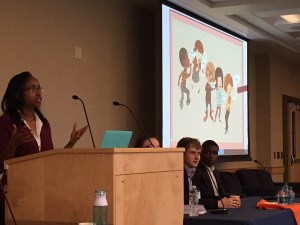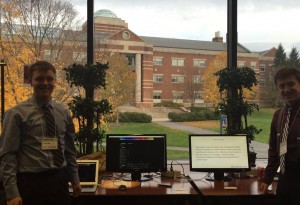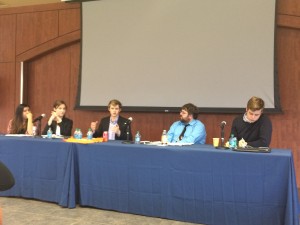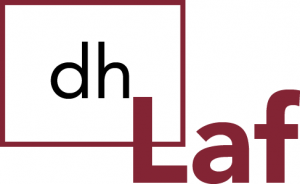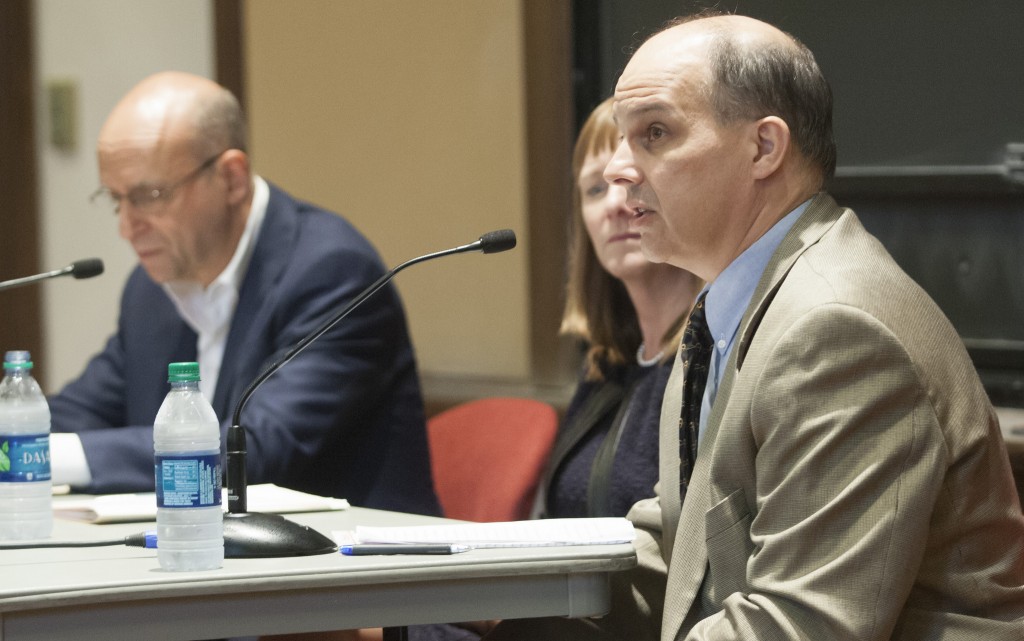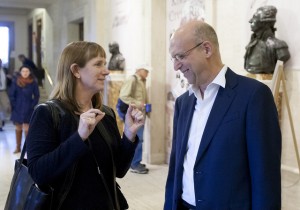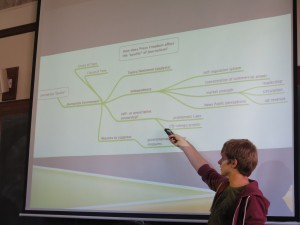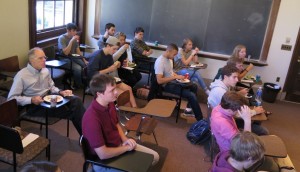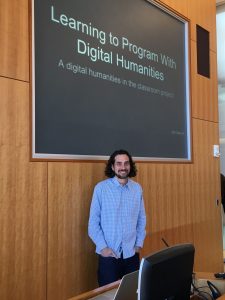
Dr. Amir Sadovnik presents on his teaching as a Digital Humanities in the Classroom grant recipient.
When we talk about the digital humanities, often we’re thinking about how digital technologies can be applied to humanistic inquiry and pedagogy. But Amir Sadovnik, Assistant Professor of Computer Science, is interested in how humanistic concerns and questions can enrich introductory studies in computer science. On March 22, Dr. Sadovnik gave a presentation on his teaching as a grantee of the Skillman Library Digital Humanities in the Classroom program.
In Dr. Sadovnik’s “Intro to Computer Science” courses, students learn the essentials of programming. Most students enter with no programming experience; over the course of the semester, they build the skills to program a tool to analyze data sets consisting of, for example, Lafayette College Yik-Yaks, or candidates’ Tweets from the 2016 presidential election. Sadovnik explained that in his traditional introductory computer science course focused on digital media computing, students learned to develop and implement algorithms for final projects such as basic sound and image editors.
With his Digital Humanities in the Classroom grant, Sadovnik aimed to make the leap from digital media processing to analysis. His teaching goals included: challenging students to construct more complex data structures in order to accommodate more complex data sets; providing students with the experience of working on a development team, as preparation for the workplace; and providing students with opportunities to work with data sets that interest them. Dr. Sadovnik’s thinking was that if students could work with data that connect with their multidisciplinary research interests in history, political science, sociology, and other areas, they would connect more meaningfully with the programming tasks at hand.
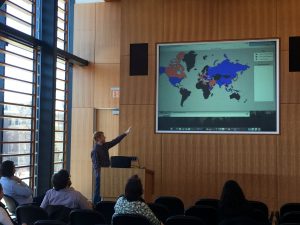
Student Mike Van Ness presents a data visualization produced by the tool he programmed in Dr. Sadovnik’s class.
Student presenters who had taken Dr. Sadovnik’s courses also offered their reflections on the DH in the Classroom experience. Shira Wein, Wassim Gharbi, and Mike Van Ness showcased their work from the class. All of the students testified that working with complex, meaningful data enhanced their introduction to computer science. Thank you very much to Dr. Sadovnik and his student co-presenters for sharing their important work!

